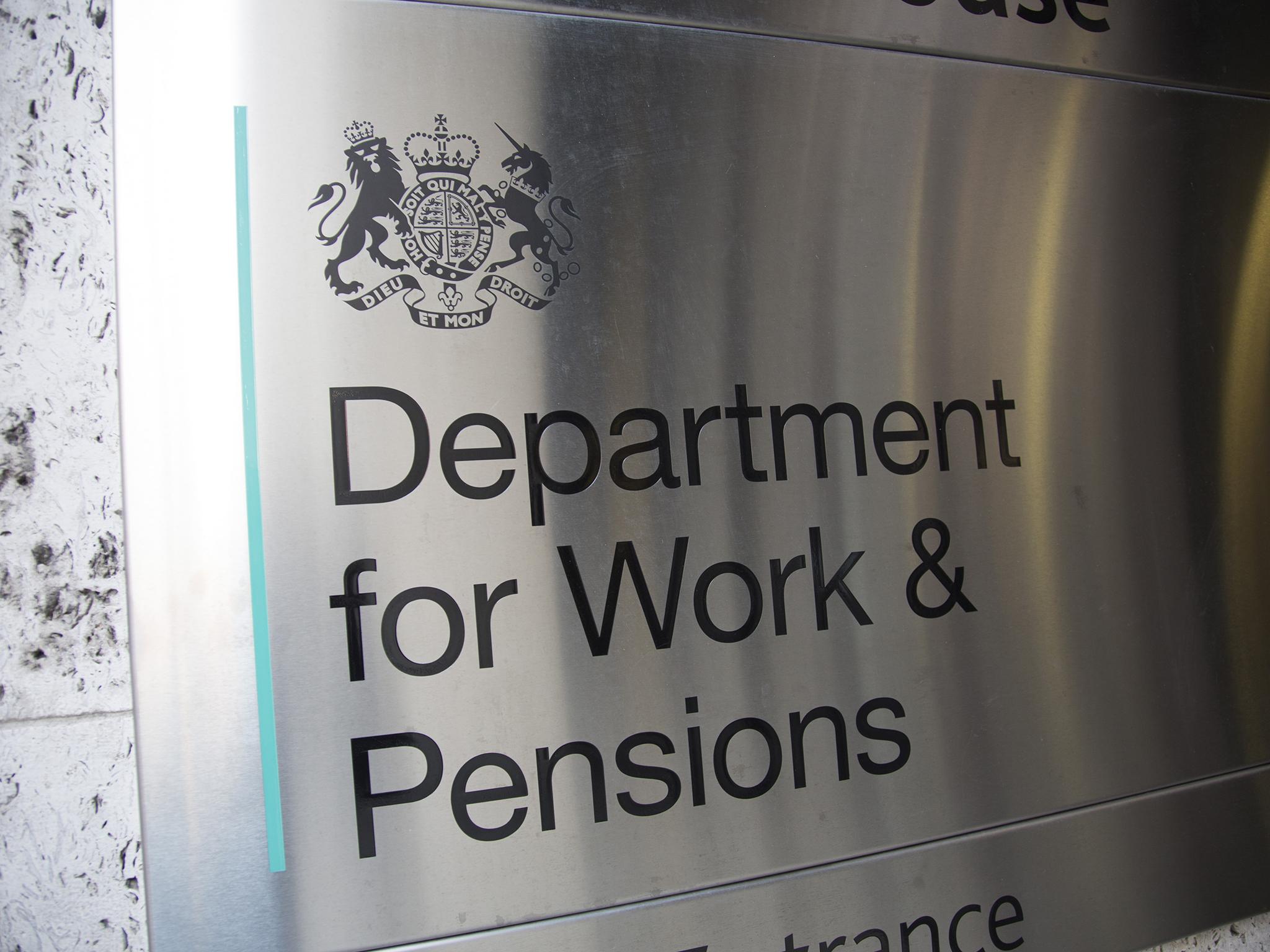Universal credit leaves disabled people £300 a month worse off, report finds
Ministers are being urged to ensure working disabled people receive targeted in-work financial support

Your support helps us to tell the story
From reproductive rights to climate change to Big Tech, The Independent is on the ground when the story is developing. Whether it's investigating the financials of Elon Musk's pro-Trump PAC or producing our latest documentary, 'The A Word', which shines a light on the American women fighting for reproductive rights, we know how important it is to parse out the facts from the messaging.
At such a critical moment in US history, we need reporters on the ground. Your donation allows us to keep sending journalists to speak to both sides of the story.
The Independent is trusted by Americans across the entire political spectrum. And unlike many other quality news outlets, we choose not to lock Americans out of our reporting and analysis with paywalls. We believe quality journalism should be available to everyone, paid for by those who can afford it.
Your support makes all the difference.Disabled people are losing £300 a month under the universal credit system, fuelling concern that the welfare reform is causing more hardship for many of the claimants it was designed to help.
Citizens Advice said the new benefit system was “penalising” single disabled people due to flaws in its design, leaving them worse off compared to the previous structure.
It comes as a report by the Public Accounts Committee (PAC) accused ministers of turning a “deaf ear” to concerns about the controversial welfare reform, saying the government was “refusing to measure what it does not want to see”.
The research by Citizens Advice shows that working disabled people face a “significant drop” in financial support when they move onto universal credit.
This is because the “work allowance” – designed to improve incentives for disabled people to work – is only awarded to people assessed as being unable to work, which the charity said was leaving disabled people in employment more than £300 a month worse off.
Disabled people who can only do limited work are meanwhile seeing their support reduced after working just six hours a week, rather than 16 hours a week in the previous system – meaning somebody working 12 hours a week can be over £100 month worse off – according to the findings.
Citizens Advice, which was called in by the government to aid the roll-out of universal credit earlier this month, is now urging ministers to ensure working people receive targeted in-work financial support if they are disabled or have a health condition.
Gillian Guy, chief executive of the charity, said: “Working disabled people need to prove they are unfit to work to get support meant for them. This goes against the government’s aim to support a million disabled people into work.
“Even when disabled people do get the support meant for them under universal credit, whether they are in work or not, they can be hundreds of pounds worse off a month than the previous system. This is money people desperately need to cover their bills.
“The government needs to address this and increase the financial support disabled people can receive under universal credit.”
Responding to the findings, Ken Butler, welfare rights advisor at Disability Rights UK, said the "robbing" of disabled people’s income was "shocking" and reason enough why the roll-out of universal credit should be halted.
“It adds to the £5bn reduction that has been lost to disabled people over the last decade, despite the government accepting disabled people have extra costs because of disability.
“This research is further proof that disabled people have been hardest hit by the austerity and cuts programme."
The findings come as MPs warn that the Department for Work and Pensions (DWP) are “persistently dismissing” evidence that universal credit is causing “hardship for claimants and additional burdens for local organisations”.
The PAC said that instead of listening to organisations on the frontline supporting claimants, the department had “continued with its fortress mentality” and as a result was “failing claimants” who struggle to adapt to the way universal credit works.
It pointed to a “troubling pattern of behaviour” among ministers – referencing the recent Employment Support Allowance (ESA) error which saw 70,000 sick and disabled people miss out on large sums of government money that they were legally entitled to due to “shoddy administration”.
Meg Hillier, chair of the committee, said the DWP was “disturbingly adrift from the real-world problems of the people it is there to support”.
She continued: “Its apparent determination to turn a deaf ear to the concerns of claimants, frontline organisations and parliament is of real concern. The culture needs to change.
“A department in denial cannot learn from its mistakes and take the action necessary to address the desperate hardship suffered by many universal credit claimants.”
“As a priority the department must demonstrate a tangible shift in the way it listens and responds to feedback and evidence.”
A DWP spokesperson said it would consider the MPs’ findings carefully, and a number of them were already being worked on. Responding to the Citizen’s Advice report, the spokesperson said: “Around one million disabled people will receive on average £110 more a month under universal credit. We have committed to transitional protection for people when they are moved from the old system onto universal credit, and this year we announced extra protections so everyone currently in receipt of the Severe Disability Premium continues to get that support when they move onto universal credit.
“As Citizen’s Advice acknowledges, universal credit provides additional support including for disabled people. For those who can work, UC offers a tailored system of support that is seeing people moving into work faster and staying in work longer than compared to the old benefits system.”
Join our commenting forum
Join thought-provoking conversations, follow other Independent readers and see their replies
Comments